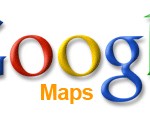 Mountain View, California — In a bid to let users find the information they are looking for as fast and make search results more relevant, global search leader Google last week introduced two new features in its search technology that is based on two of its experimental products — Google Squared — highlighting of answers in search results and Rich Snippets for events.
Mountain View, California — In a bid to let users find the information they are looking for as fast and make search results more relevant, global search leader Google last week introduced two new features in its search technology that is based on two of its experimental products — Google Squared — highlighting of answers in search results and Rich Snippets for events.
Answer highlighting empowers users to acquire information they need quickly just by bolding out the likely answers to their questions for search results with factual answers.
“Most information on the web is unorganized… Unorganized data is difficult for a computer to interpret, which means that we humans still have to do a fair amount of work to synthesize and understand information on the web,” Kavi Goel and Noah Weiss, Product Managers at Google wrote.
One way Google accomplishes this is with Rich Snippets but now it is including a new feature, “Answers Highlights,” which replaces the usual text snippets in the results with the ‘answer’ to any factual query. This would provide users an idea whether they should click on the link provided on the search results based on whether the higlighted text really answers their queries.
For instance, if the query is “empire state height,” it will bold or highlight related text on the search result, in addition to the words us

ed in the query. Previously, it would have only bolded those words.
“Google Squared is one of our initial attempt to automatically identify all the information scattered across the web and present it to the user in a structured fashion. There is a Google Labs page set up to check out how the project is coming along but the most important part of the work is done on the underlying algorithms. Now, the results of that work are making their way into the main search engine.”
“For example, blogs combines paragraphs of text, videos and images in ways that do not follow simple rules. Product review sites each have their own formats, rating scales and categories. Thus, unorganized data is difficult for a computer to interpret, which means that we humans still have to do a fair amount of work to synthesize and understand information on the web,” says Google.
A large number of Google rivals over the years have suggested that search results lists do not go far enough to present users with the answers they are seeking and have offered a variety of ostensible improvements.
One example is Microsoft’s Bing, which answers the query “london flights” with specific travel deals and prices from Bing Travel at the top of its search results list. A Google search returns links to Web sites related to travel, requiring at least an extra click, if not more, to see ticket prices.
The company also rolled out another new feature illustrating the use of the Rich Snippets, the fragments of data that are included in the search results. Now these Rich Snippets would also contain structured data with links to specific events – their names, dates and locations.
However, to make Rich Snippets for events work, this has to start with support from webmasters’ end. Webmasters must decently mark up their site content to identify Rich Snippets for events. You can find out how to implement support for the feature on your site here.
Whether these modifications are welcomed by Web site owners is another matter. But by making its search results more informative, Google may reduce the incentive to click through to the Web sites it indexes.


